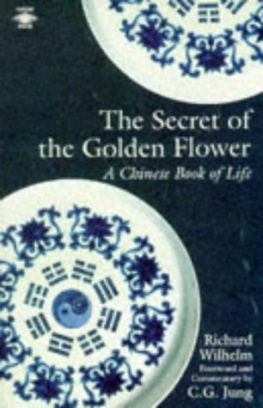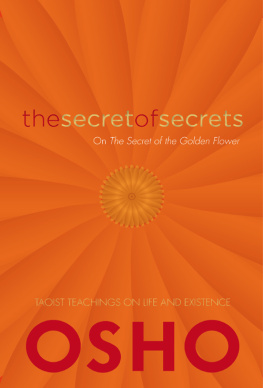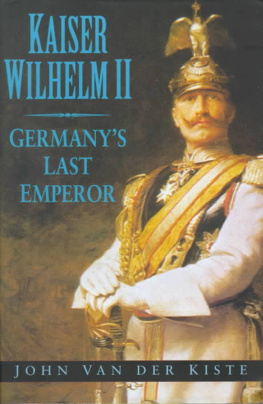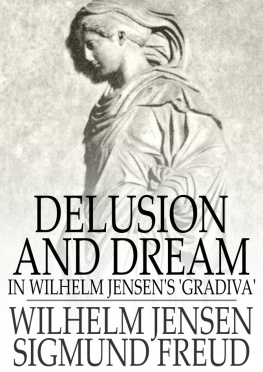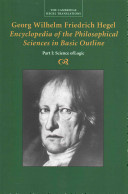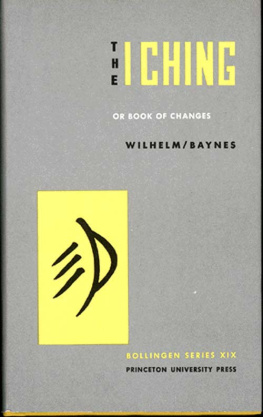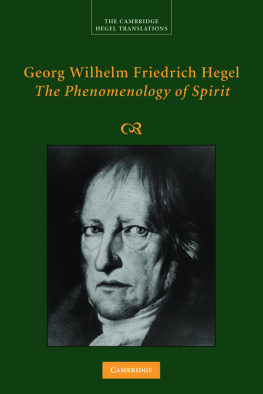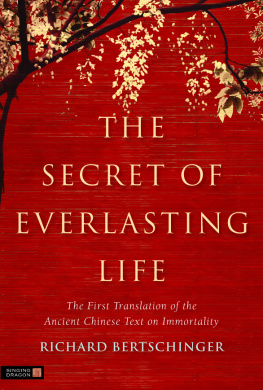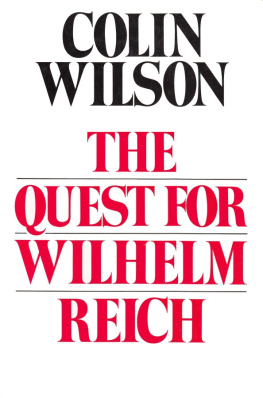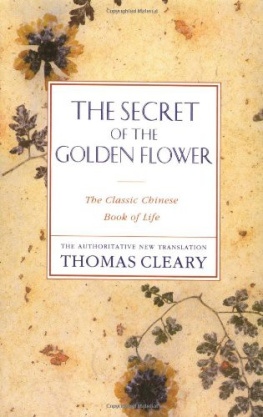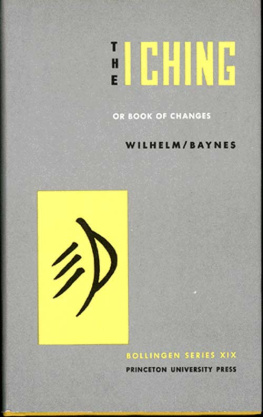THE SECRET OF THE GOLDEN FLOWER
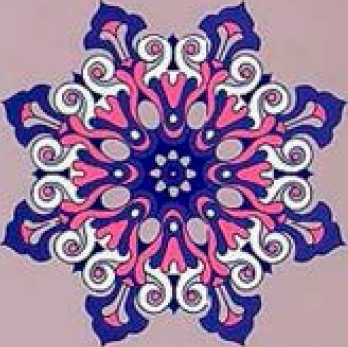
TRANSLATED BY RICHARD WILHELM
WITH A COMMENTARY BY C G JUNG
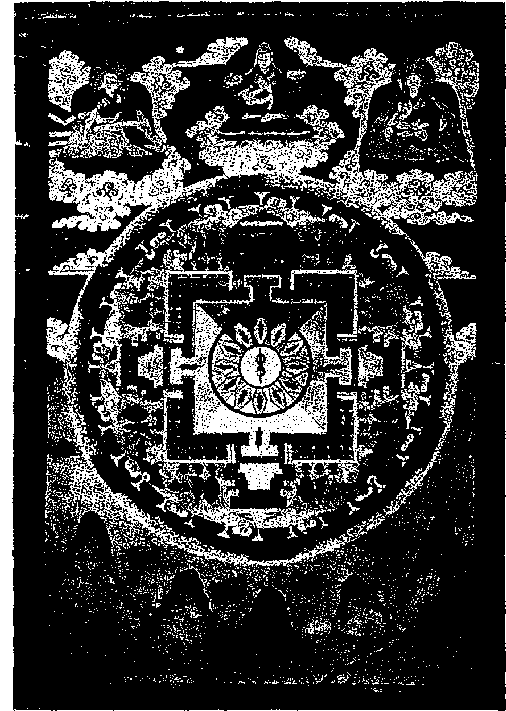
A Lamaist Vajry-Mandala, to be studied in preparation for meditation.
First published in the United States 1931
New, revised, and augmented edition published in 1962 [No copyright renewal filed]
All rights reserved. No part of this publication may be reproduced or transmitted in any form or by any means, electronic or mechanical including photocopy, recording, or any information storage and retrieval system, without permission in writing from the publisher.
Requests for permission to make copies of any part of the work should be mailed to: Copyrights and Permissions Department, Harcourt Brace Jovanovich, Publishers, Orlando, Florida 32887.
Translated from the German by Gary E Baynes
Library of Congress Catalog Card Number: 62-10499
ISBN 0-15-679980-4 (Harvest/HBJ:pbk.)
Printed in the United States of America
NOPQRST
CONTENTS
Translator's Preface vii
Foreword to the 2nd German Edition by C. G. Jung xiii
Foreword to the 5th German Edition by S. Wilhelm xv
A DISCUSSION OF THE TEXT BY RICHARD WILHELM
Origin and Contents of the T'ai I Chin Hua Tsung Chih (The Secret of the Golden Flower) 3
I. Origins of the Book 3
2. The Psychological and Cosmological Premises of the Text 10
TRANSLATION OF THE T 'AI I CHIN HUA TSUNG CHIH
- Heavenly Consciousness (the Heart) 21
- The Primal Spirit and the Conscious Spirit 24
- Circulation of the Light and Protection of the Centre 30
- Circulation of the Light and Making the Breathing Rhythmical 40
- Mistakes During the Circulation of the Light 45
- Confirmatory Experiences During the Circulation of the Light 48
- The Living Manner of the Circulation of the Light 51
- A Magic Spell for the Far Journey 53
- Summary of the Chinese Concepts on Which Is Based
the Idea of the Golden Flower, or Immortal Spirit-Body 64
THE HUI MING CHING
(The Book of Consciousness and Life)
COMMENTARY BY C. G. JUNG
Introduction 81
1. Difficulties Encountered in Trying to Understand the East 81
2. Modern Psychology Offers a Possibility of Understanding 86
The Fundamental Concepts 97
1. The Tao 97
2. The Circular Movement and the Centre 99
Phenomena of the Way 108
1. The Disintegration of Consciousness 108
2. Animus and Anima 115
The Detachment of Consciousness from the Object 122
The Fulfilment 128
Conclusion 136
Examples of European Mandalas 137
Appendix: In Memory of Richard Wilhelm 138
TRANSLATOR'S PREFACE
the original German edition of the The Secret of the Golden Flower, of which the following is the authorized English translation, appeared first in the autumn of 1929. On March 1, 1930, Richard Wilhelm died. In May, 1930, memorial services were held in Munich, and Jung was asked to deliver the principal address. The latter finds an appropriate place in the English version, 1 which is published a year or more after the co-author's death. The address will be welcomed, not only for what it tells the reader of Wilhelm but for the further light it throws on the standpoint of the East.
The relation of the West to Eastern thought is a highly paradoxical and confusing one. On the one side, as Jung points out, the East creeps in among us by the back door of the unconscious and strongly influences us in perverted forms, and on the other we repel it with violent prejudice as concerned with a fine-spun metaphysics that is poisonous to the scientific mind.
If anyone is in doubt as to how far the East influences us in secret ways, let him but briefly investigate the fields covered to-day by what is called 'occult thought'. Millions of people are included in these movements and Eastern ideas dominate all of them. Since there is nowhere any sign of a psychological understanding of the phenomena on which they are based, they undergo a complete twisting and are a real menace in our world.
A partial realization of what is going on in this direction, together with the Westerner's native ignorance and mistrust of the world of inner experience, builds up the prejudice against the reality of Eastern wisdom.
1 See Appendix, p. 138.
vii
When the wisdom of the Chinese is laid before a Westerner, he is very likely to ask with a sceptical lift of the brows why such profound wisdom did not save China from its present horrors. Of course, he does not stop to think that the Chinese asks with an equal scepticism why the much-boasted scientific knowledge of the West, not to mention its equally boasted Christian ethics, did not save it from a World War. But as a matter of tact, present conditions in China do not invalidate Chinese wisdom, nor did the Great War prove the futility of science. In both cases we are dealing with the negative sides of principles under which East and West live, and it has not yet been given, either to individuals or to nations, to manage the vices of their virtues. Mastery of the inner world, with a relative contempt for the outer, must inevitably lead to great catastrophes. Mastery of the outer world, to the exclusion of the inner, delivers us over to the demonic forces of the latter and keeps us barbaric despite all outward forms of culture. The solution cannot be found either in deriding Eastern spirituality as impotent or by mistrusting science as a destroyer of humanity. We have to see that the spirit must lean on science as its guide in the world of reality, and that science must turn to the spirit for the meaning of life.
Such is the point of view established in this book. Through the combined efforts of Wilhelm and Jung we have for the first rime a way of understanding and appreciating Eastern wisdom which satisfies all sides of our minds. It has been taken out of metaphysics and placed in psychological experience. We approach it with an entirely new tool, and are protected from the perversions the East undergoes at the hands of the cult-mongers of the West. At the same time, its meaning for us is greatly deepened when we know that, despite the gulf separating us from the East, we follow exactly similar paths when once we give heed to the inner world.
viii
But this book not only gives us a new approach to the East, it also strengthens the point of view evolving in the West with respect to the psyche. The reshaping of values in progress to-day forces the modern man out of a nursery-world of collective traditions into an adult's world of individual choice. He knows that his choice and his fate now turn upon his understanding of himself. Much has been taught him in recent years about the hitherto unsuspected elements in his psyche, but the emphasis is all too often on the static side alone, so that he finds himself possessed of little more than an inventory of contents, the nature of which serves to burden him with a sense of weariness rather than to spur him on to master the problems that confront him. Yet it is precisely the need of understanding himself in terms of change and renewal which most grips the imagination of modern man. Having seen the world of matter disappear before his scientific eye and reappear as a world of energy, he comes to ask himself a bold question: Does he not contain within his psyche a store of unexplored forces, which, if rightly understood, would give him a new vision of himself, and help safeguard the future for him? In this book his question is answered from two widely different sources, Chinese yoga and analytical psychology. Stripped of its archaic setting,
Next page
